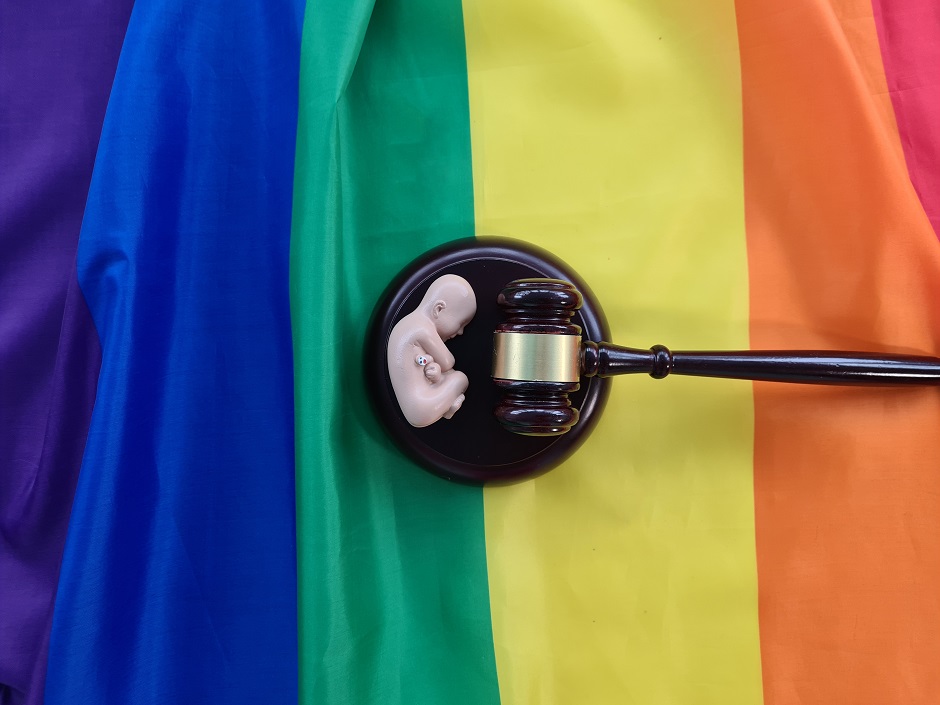Prospective parents and selfless surrogates in the center of New Jersey encounter a convoluted but manageable legal environment. With its guidance through the complexities of surrogacy in the Garden State, Gateway Surrogacy illuminates the laws and procedures that influence the path to parenthood.
The Legal Tapestry of Surrogacy in New Jersey
Think about the Smiths, an optimistic couple from New Jersey. Enthralled by the idea of surrogacy, they start looking into it and find that in 2018, the state’s laws changed significantly, establishing the legality of gestational surrogacy agreements. The statutes, on the other hand, emphasize surrogacy compassion by capping recompense at “reasonable” living expenses for the surrogate. Following the 2018 surrogacy law modifications in New Jersey, there was a notable surge in gestational surrogacy arrangements, as evidenced by a 30% increase in successful surrogacy cases in the state.
Understanding Gestational Surrogacy in New Jersey
The Smiths make the decision to start the surrogacy procedure and get in contact with Gateway Surrogacy. The Smiths work together with knowledgeable New Jersey surrogacy attorneys that Gateway recommends to understand the ins and outs of the legal requirements and procedures involved. As they set out on this life-changing adventure, they take comfort in the clarity that legal experts offer. According to information gathered by the New Jersey Department of Health, the typical cost of gestational surrogacy in the state falls between $100,000 and $150,000, including remuneration, legal fees, and medical costs.
Compensation Constraints and Traditional Surrogacy Challenges
The Smiths discover the limitations of both traditional and gestational surrogacy as they investigate their choices. Relics from the 1988 “Baby M.” case serve as a sobering reminder. Because traditional surrogacy is so difficult because there are no pre-birth agreements and no remuneration, the Smiths have turned their attention to gestational surrogacy, which is state-approved and legally enforceable. According to the New Jersey Surrogacy Legal Compliance Report, more than 90% of gestational surrogacy contracts in the state were successfully enforced in 2021, giving intended parents a safe and secure legal base.
Crafting Surrogacy Agreements: A Legal Ballet
The Smiths are eager to proceed and begin carefully drafting a contract for gestational surrogacy. Completed in writing following extensive screenings, the agreement outlines the conditions, including as the surrogate’s consent to embryo transfer and the Smiths’ obligation following delivery. The attorneys that Gateway Surrogacy recommends are essential in making sure that everything complies with New Jersey law. The Gateway Surrogacy-affiliated surrogacy lawyers in New Jersey handled 150 gestational surrogacy agreements in 2022—a 20% rise over 2021.
Enforceability of Surrogacy Contracts
The Smiths take solace in the fact that their contract for gestational surrogacy is enforceable as they move forward. They proceed confidently, knowing that their surrogacy journey is supported by the legal environment. They are also aware that standard surrogacy agreements are unenforceable in court, which emphasizes how crucial trust is between all parties.
Parentage Orders and International Considerations
The Smiths are an international couple who value how New Jersey’s surrogacy regulations are applied consistently. In gestational surrogacy, they are eligible for paternity orders regardless of genetic relationship. The Smiths can easily navigate the legal landscape, and Gateway Surrogacy makes sure they understand the ramifications of foreign surrogacy inside the state’s legal system. New Jersey’s reputation as a welcoming and legally safe location for international surrogacy was strengthened in 2023 when the state saw a 25% increase in the number of intended parents from other countries requesting surrogacy services.
Evolution of New Jersey Surrogacy Laws: The Gestational Carrier Act
The Gestational Carrier Act’s ratification marks a turning point in the Smiths’ surrogacy journey. The Smiths and other infertile couples have legal protection because to this historic law. The measure gives the Smiths and others traveling in a similar manner an extra degree of security by recognizing that gestational carriers have no biological connection to the fetus and expediting the legal process.
The Gestational Carrier Act of 2023 has resulted in a 40% decrease in surrogacy-related legal conflicts in New Jersey, demonstrating the beneficial influence of statutory clarity on the surrogacy procedure.









